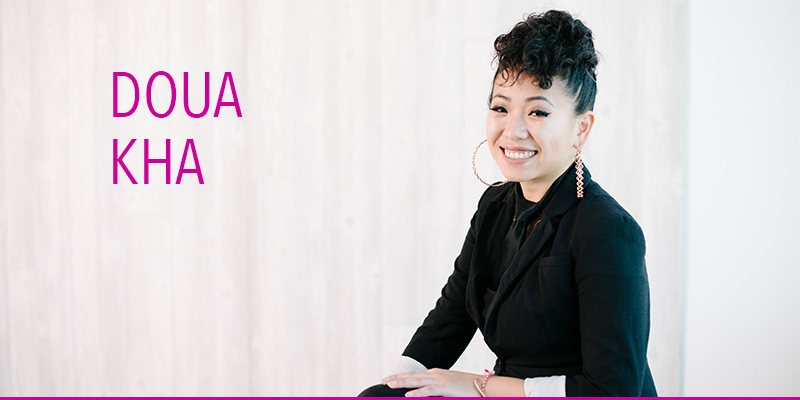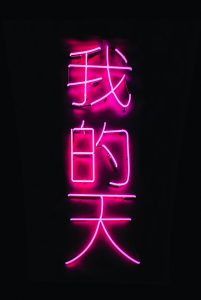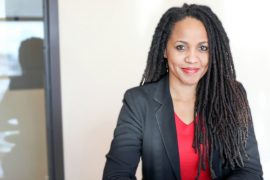By Julia Richards
Doua Kha has long struggled to reconcile being queer with being Hmong. Kha, who uses the pronouns they, their and them, is now working to support other youth who may wrestle with issues of identity. “Looking back, I wish I had a mentor or a teacher who looked like me or identified like me,” they say.
Born in a refugee camp in Thailand, Kha was 1 when the family moved to Milwaukee. When they then moved to a small, predominantly white town near Wausau, “it was the first time that I ever realized that I was a different race,” says Kha.
Later, grappling with their queer identity, Kha found language a barrier to coming out to parents who don’t speak English. “In Hmong you can’t translate queer,” says Kha, who uses the term to describe both sexuality and gender identity. The idea of leaving one’s family if they are not accepting is also not a solution in a culture centered around kinship.
Currently a grad student in curriculum and instruction at UW-Madison, Kha supports student teachers learning to nurture young people’s diverse identities. “She’s a really dynamic presence who works to center issues of equity and justice,” says Tom Owenby, Kha’s supervisor and mentor.
Early this year, Kha’s research and volunteer work will seek to help young people better understand their identities. Kha will interview UW System college students to develop a master’s thesis broadening the scope of literature on queer Asian American identity.
Kha will also partner with the Bayview Foundation to lead middle school and high school youth in exploring all aspects of identity through creative writing. The goal is to compile the resulting poems and stories into an anthology. “Reflective work is very important in understanding who you are in order to move forward,” Kha says.



